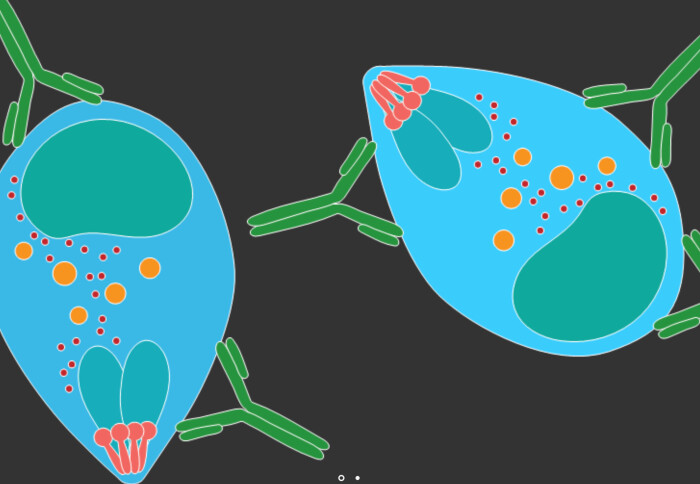Imperial researchers scoop £5m award for fight against malaria
by Emily Govan

New funding will help researchers to understand natural immunity to malaria and how it could be harnessed to create new vaccines.
An international team of researchers, led by Imperial College London, has been awarded funding to help understand how/why some people develop natural immunity to malaria.
The new £5 million Discovery Award from Wellcome will enable scientists to help uncover the mechanisms of acquired immunity against malaria.
The group will be led by Professor Faith Osier, from the Department of Life Sciences and Co-Director of the Institute of Infection at Imperial, Professor Hedda Wardemann from the German Cancer Research Centre (DZIF), and Professor Matthew Higgins from the University of Oxford.
Professor Osier said: “I am sincerely grateful to Wellcome for this long-term award that enables me to establish my malaria research group at Imperial College London and collaborate with world-leading experts in structural and immune cell biology. The award positions me to create new opportunities to train African scientists and to advance our understanding of how humans acquire immunity to malaria, for better vaccine design.”
Observational studies and human challenge studies – which involve healthy participants being infected under carefully controlled clinical conditions – have previously demonstrated that some people can become completely resistant to malaria following repeated infections. Uncovering how the immune system can mount a response to the parasite which causes malaria, and protect against it again in future, could pave the way for the next generation of vaccines against malaria.
“I am sincerely grateful for this long-term award. It positions me to create new opportunities to train African scientists and to advance our understanding of how humans acquire immunity to malaria, for better vaccine design.” Professor Faith Osier Department of Life Sciences
Professor Osier and her team have conducted recent studies showing that antibodies don’t tackle the malaria parasite on their own. They call for back up – lots of it. This comes in the form of multiple immune cells and effectors such as neutrophils, natural killer cells, monocytes, and complement. These cells release toxic molecules that kill parasites or simply gobble them up.
The trio will now use the funding to figure out the molecular details of these interactions using state-of-the-art technologies.
Professor Higgins’ team will use electron microscopy based polyclonal epitope mapping to provide the ‘GPS co-ordinates’ of the antibodies on proteins that cover the surface of the malaria parasite when it infects red blood cells.

Professor Wardemann’s team will define the molecular signature of these antibodies, figuring out how they mature and are maintained in the long term. Meanwhile Professor Osier’s team will study the sugars that make up part of the structure of antibodies, akin to understanding which ‘regiments’ within the broader immune police force are best suited not only to detection but to destruction of parasites. They will also study the receptors on the immune cells that give malaria parasites a run for their money.
Professor Higgins said: “I am really looking forward to working with Faith and Hedda to uncover what makes people able to resist malaria infection. By seeing how the most effective antibodies bind to the machinery of the parasite we will be able to guide the design of the vaccines of the future.”
Professor Wardemann said: “I am very excited about working with this team of outstanding scientists. Previous studies have focussed on understanding how antibodies bind the malaria parasite, but the potency of antibodies also depends on how they engage immune cells to help fight the parasite. With our complementary expertise in immunology, structural biology and malaria we will be able to look at both functions at molecular level. Linking antibody binding and effector function will allow us to design an efficacious vaccine that is desperately needed to prevent malaria, a devastating disease that still kills over 600,000 people every year.”
Wellcome Discovery Awards provide funding for established researchers and teams from any discipline who want to pursue bold and creative research ideas to deliver significant shifts in understanding that could improve human life, health and wellbeing.
Article text (excluding photos or graphics) © Imperial College London.
Photos and graphics subject to third party copyright used with permission or © Imperial College London.
Reporter
Emily Govan
Department of Life Sciences